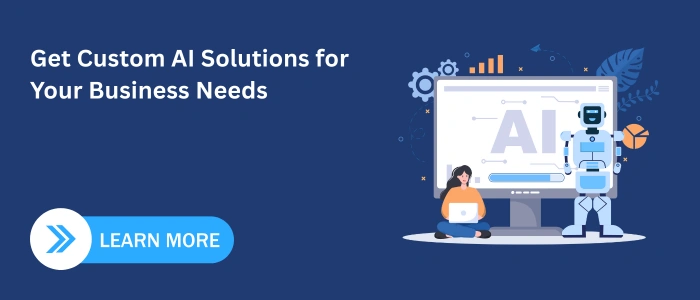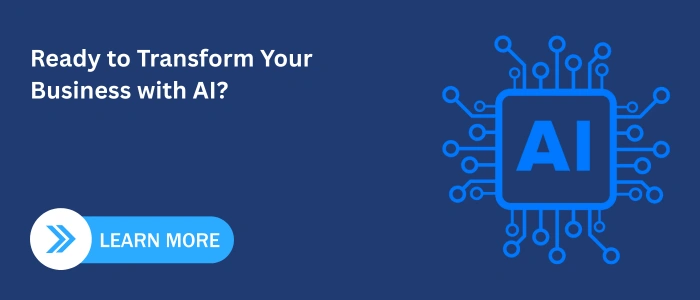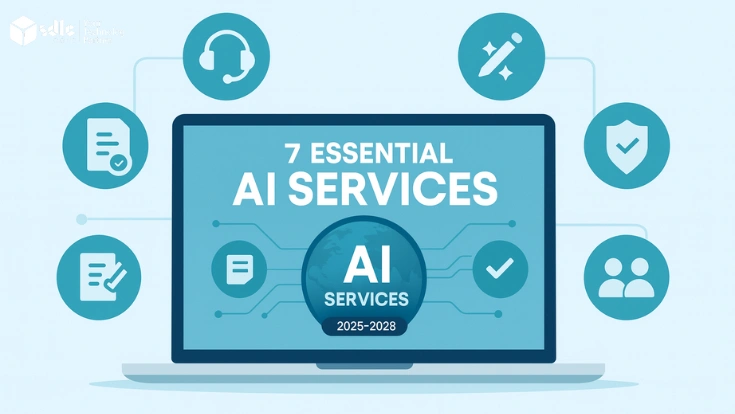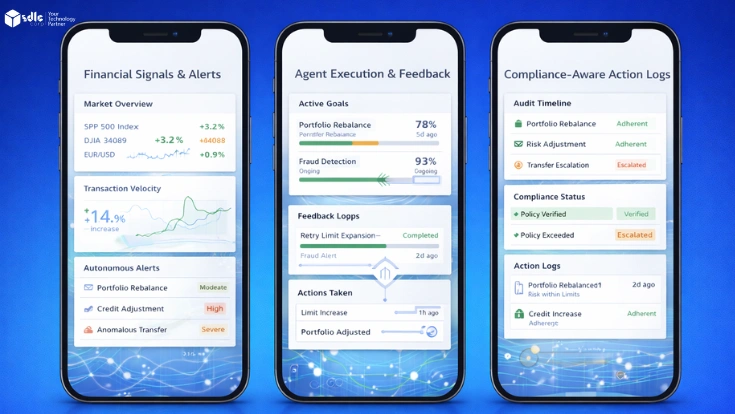Introduction
Artificial Intelligence (AI) has moved from being an experimental technology to becoming the foundation of modern business transformation. From automating repetitive processes to enabling hyper-personalized customer experiences, AI is redefining how organizations operate, compete, and grow.
In the next three years, businesses will face increasing pressure to integrate AI-powered solutions across departments customer service, marketing, HR, supply chain, or cybersecurity. Partnering with an experienced AI development company can help businesses adopt these tools faster and align them with their specific goals.
AI-Powered Chatbots & Virtual Assistants
Gone are the days when chatbots could only answer a handful of scripted FAQs. With advancements in natural language processing (NLP) and generative AI, today’s chatbots can hold conversations that feel almost human.

Key Benefits:
AI chatbots improve customer support quality, reduce costs, and deliver scalable assistance across industries.
- 24/7 Support: Customers get instant answers anytime.
- Cost Reduction: Reduces dependency on large customer support teams.
- Scalable Service: Handles thousands of queries simultaneously.
Use Cases:
Businesses in retail, finance, and healthcare are leveraging chatbots to automate customer service and enhance efficiency.
- E-commerce: Chatbots assist in order tracking, refunds, and personalized product recommendations.
- Banking: Virtual assistants help with balance checks, fraud alerts, and loan queries.
- Healthcare: AI chatbots schedule appointments, provide symptom checks, and share medication reminders.
Future Trend:
Next-gen assistants like Microsoft Copilot and ChatGPT Enterprise will integrate across apps (email, CRM, ERP) to act as business copilots, streamlining workflows and boosting employee productivity.
Generative AI for Content Creation
Generative AI is becoming a core tool for marketing, design, and publishing, making it easier to create personalized content at scale.

Key Benefits:
Generative AI makes content creation faster, scalable, and more personalized than traditional methods.
Faster Content Production: Reduce turnaround from days to minutes.
Consistency: Maintains a uniform brand voice across multiple platforms.
Personalization: Generates content tailored to specific customer segments.
Use Cases:
Companies in marketing, design, and publishing rely on AI tools to automate and optimize creative processes.
Marketing: Jasper AI creates ad campaigns optimized for clicks and conversions.
Design: Canva AI and MidJourney generate visuals, mockups, and marketing collateral.
Publishing: AI tools create drafts of blogs, newsletters, and product descriptions.
Future Trend:
Generative AI is moving toward complete campaign automation, combining strategy with execution.
Generative AI will evolve from producing content to orchestrating entire marketing campaigns including ideation, audience targeting, testing, and optimization.
AI in Data Analytics & Business Intelligence
AI transforms raw data into actionable insights, helping businesses make faster and smarter decisions with predictive analysis.

Key Benefits:
AI enhances BI platforms by delivering predictive analytics, anomaly detection, and easier access to data insights.
Predictive Analysis: Anticipates customer behavior and market changes.
Automated Insights: Detects anomalies and suggests next actions.
Data Democratization: Enables non-technical staff to analyze data without coding.
Use Cases:
Organizations leverage AI-driven BI to forecast, detect risks, and improve customer experiences.
Retail: Predicts demand spikes and optimizes stock levels.
Finance: Detects unusual transactions to prevent fraud.
SaaS: Monitors customer engagement to reduce churn.
Future Trend:
Future BI will be conversational and interactive, delivering instant insights via natural queries.
AI-driven BI tools will integrate with voice assistants, enabling managers to simply “ask the dashboard” questions like “What were sales last quarter?” and get instant insights.
AI-Powered Cybersecurity Tools
As businesses digitize, they also become bigger targets for cyberattacks. Traditional security systems can’t keep up with zero-day threats and sophisticated attacks. AI brings a proactive layer of defense.

Key Benefits:
AI empowers security systems to detect, prevent, and learn from cyberattacks in real time.
Real-Time Detection: Identifies unusual patterns before breaches occur.
Fraud Prevention: Monitors financial transactions for anomalies.
Adaptive Defense: Learns from each attack attempt to strengthen security.
Use Cases:
Different industries deploy AI security to protect sensitive data and online operations.
Banking: AI prevents card fraud by detecting abnormal spending patterns.
Healthcare: Protects patient records from ransomware attacks.
E-commerce: Flags suspicious login attempts to stop account takeovers.
Future Trend:
AI will evolve into autonomous systems capable of repairing and defending themselves.
In the next 3 years, AI will enable self-healing security systems that automatically patch vulnerabilities and neutralize threats without human intervention.
AI for Marketing & Personalization
Personalization is now a customer expectation, and AI makes it possible to deliver targeted experiences at scale.

Key Benefits:
AI allows businesses to deliver precise, personalized experiences that increase conversions and retention.
Improved Conversions: Personalized emails and ads drive higher sales.
Customer Retention: Tailored loyalty programs keep customers engaged.
ROI Optimization: AI ensures ad budgets are spent effectively.
Use Cases:
Personalization through AI is now central to retail, entertainment, and digital marketing.
Retail: AI recommends products based on browsing and purchase history.
Streaming Platforms: Netflix and Spotify personalize recommendations.
Email Marketing: AI creates individualized subject lines to boost open rates.
Future Trend:
AI will drive real-time personalization that adapts dynamically to customer behavior.
Hyper-personalization powered by real-time AI will dominate ads, offers, and content will adapt instantly as customers interact with brands.
AI in HR & Talent Management
AI is helping HR teams improve recruitment, employee engagement, and retention with smarter insights.

Key Benefits:
AI transforms HR processes by improving hiring, engagement, and workforce retention.
Faster Recruitment: Automates resume screening and shortlisting.
Bias Reduction: Evaluates candidates on skills, not background.
Employee Retention: Predicts attrition risks early.
Use Cases:
HR teams integrate AI for smarter recruitment, performance reviews, and well-being analysis.
Recruitment: AI screens thousands of resumes to find the right match.
Performance Management: Identifies employees needing upskilling.
Well-being Monitoring: Tracks employee sentiment through surveys and behavior patterns.
Future Trend:
AI will create personalized growth paths, reducing attrition and increasing engagement.
AI will evolve into career pathing engines, recommending personalized growth plans for employees, reducing turnover, and increasing satisfaction.
Read More – AI for Human Resources
AI-Powered Automation Tools (RPA + AI)
Combining AI with RPA brings intelligence to automation, enabling smarter, faster workflows.

Key Benefits:
AI combined with RPA brings intelligence to repetitive processes, reducing costs and errors.
Efficiency: Automates high-volume, rule-based processes.
Error Reduction: Eliminates human errors in manual workflows.
Cost Savings: Reduces the need for manual data entry.
Use Cases:
AI + RPA solutions optimize workflows in finance, healthcare, and manufacturing.
Finance: Automated invoice approvals.
Healthcare: Patient data entry and claims processing.
Manufacturing: Quality inspections powered by computer vision.
Future Trend:
The future of automation is fully autonomous workflows requiring minimal human oversight.
AI + RPA will power autonomous business processes, where entire workflows (e.g., order-to-cash cycle) run without human involvement.
AI in Sales Enablement & CRM
AI is making CRMs smarter, helping sales teams close more deals with less effort.

Key Benefits:
AI supports sales teams by forecasting leads, automating updates, and improving conversations.
Smarter Forecasting: Predicts which leads are most likely to convert.
Productivity Boost: Automates CRM updates and note-taking.
Coaching: Provides real-time suggestions during sales calls.
Use Cases:
Sales CRMs use AI to prioritize leads, analyze calls, and improve customer retention.
Call Analysis: Tools like Gong.io analyze calls to improve pitch quality.
Lead Prioritization: AI ranks prospects based on purchase intent.
Customer Retention: Identifies at-risk accounts.
Future Trend:
Sales CRMs will act as decision-making copilots, guiding reps through every interaction.
AI-driven CRMs will become decision-making assistants, guiding sales reps on what to say, when to follow up, and how to maximize revenue.
AI for Supply Chain & Logistics
AI is helping businesses make supply chains more resilient, cost-efficient, and predictive.

Key Benefits:
AI strengthens supply chains by predicting demand, cutting costs, and mitigating disruptions.
Forecast Accuracy: Prevents overstocking or stockouts.
Cost Efficiency: Optimizes shipping routes and fuel consumption.
Risk Management: Identifies potential disruptions in advance.
Use Cases:
Businesses use AI logistics to predict demand, optimize routes, and manage stock.
Retail: AI predicts demand surges during holidays.
Logistics: AI maps optimal delivery routes in real-time.
Manufacturing: Ensures raw material availability without overstocking.
Future Trend:
Supply chains will become autonomous and self-adjusting to real-world changes.
The rise of autonomous supply chains, where AI dynamically adjusts operations in response to real-world events (weather, delays, geopolitical issues).
AI-Driven Collaboration Tools
Collaboration platforms are becoming smarter with AI, supporting hybrid and global teams.

Key Benefits:
AI improves collaboration by summarizing, organizing, and assisting teams globally.
Time Savings: Automated meeting summaries and action items.
Knowledge Sharing: AI organizes notes and project files.
Multilingual Collaboration: Real-time AI translation breaks language barriers.
Use Cases:
Companies implement AI for smoother meetings, project management, and remote teamwork.
Meetings: Tools like Otter.ai summarize and highlight key decisions.
Project Management: Notion AI organizes documents and generates to-dos.
Remote Teams: AI transcription helps global teams collaborate seamlessly.
Future Trend:
Collaboration tools will act as AI copilots, driving smarter teamwork and productivity.
Collaboration tools will evolve into AI workplace copilots, orchestrating schedules, prioritizing tasks, and automating reporting.
Future Outlook: AI in the Next 3 Years
AI adoption will accelerate, reshaping industries, creating new business models, and enforcing stronger regulations.
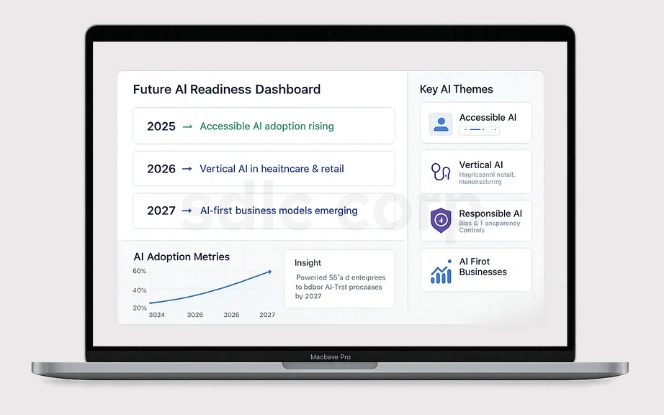
Accessible AI:
AI will become easier to use, enabling even non-technical teams to adopt it quickly.
Vertical AI Solutions:
Sector-specific AI will dominate, addressing unique challenges in industries like healthcare, retail, and manufacturing.
Responsible AI:
Ethical, transparent AI will gain importance as regulations and trust factors grow.
AI-First Business Models:
Companies built entirely on AI-first models will emerge, focusing on efficiency and innovation.
Enterprise-Grade AI Systems
Larger organisations often require AI systems that support multiple departments, regions, and compliance frameworks. Approaches used by an enterprise AI development company help ensure scalability, data governance, and role-based access control.
Voice-Based AI and Workflow Automation
Voice-enabled AI is expanding beyond call centres into internal operations. An AI call automation platform illustrates how automated voice workflows can be structured and governed.
Conclusion
Artificial Intelligence is shaping the way businesses work, grow, and compete. Whether it’s improving customer service, automating processes, or turning data into decisions, the next few years will see AI at the center of business strategies. Companies that adopt early will gain speed, efficiency, and stronger customer connections, while those that wait may struggle to keep pace.
To move forward, organizations need solutions built around their unique goals. Partnering with specialists makes adoption faster and more effective. This is the right time to hire AI developers who can design practical, future-ready systems to keep your business ahead.
Related Blogs You Should Explore:
FAQ'S
What Are The Most Important Ai Tools Businesses Should Adopt In The Next 3 Years?
Businesses should focus on AI chatbots, generative AI for content, AI-powered cybersecurity tools, predictive analytics, supply chain optimization, and automation platforms.
How Can Ai Improve Customer Experience?
AI enhances customer experience through 24/7 chatbots, personalized recommendations, sentiment analysis, and real-time support that builds stronger customer relationships.
Is Investing In Ai Tools Cost-effective For Small Businesses?
Yes. Many cloud-based AI solutions are affordable and scalable, allowing small businesses to pay as they grow without heavy upfront costs.
Why Should Businesses Work With An Ai Development Company?
Partnering with an AI development company ensures custom-built solutions, faster adoption, and alignment with business goals.
When Should I Hire Ai Developers For My Business?
You should hire AI developers when your business needs customized AI solutions—such as process automation, predictive analytics, or AI-driven apps—that off-the-shelf tools cannot provide.

